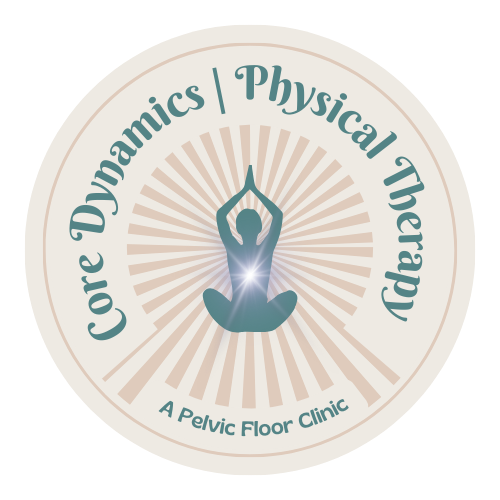“Sticks and stones may break my bones. But words will never hurt me.” Do you remember this rhyme from your childhood? I do. When we were kids, we would repeat this rhyme when someone may have teased us or called us a name. We would respond to the name caller to let them know their harsh words would not hurt us. But was this always true? As an adult, I do think the words can hurt us. There is a current person in my life who tends to call me crazy. For some reason, this person thinks teasing is not harmful. I hear that word, and it stabs me. There is something about that word that makes me cringe. I admit, I use it jokingly when my children are hyper and acting kind of funny. And when they hear me saying this, they make funny faces and funny dances. Clearly the word affects them differently than it affects me. So why does that word trigger a reaction? It is something I am investigating. So, when I think of my reaction to this word, I begin thinking of the words my patients hear. I work with many people who have chronic pelvic pain. In fact, many of them have been accused of making up their symptoms and their symptoms are in their heads. Perhaps I feel like they are being called crazy? And perhaps that makes sense the word triggers my reaction when I am being called crazy.
So why does the rhyme say the words won’t hurt us? Why have we allowed the name callers to think they are not hurting us? Are we adding fire to the flame? Just today I used the rhyme as a response to the person who calls me crazy, the one that uses the trigger word. Now I wonder if the person will keep using the word as I told them, I am stronger than your words. When in reality, I am not. The word clearly causes me anger amongst other feelings. This incidence led me to think of some words a former patient was told last week by a health professional. This patient flew out of state for a procedure she believed could really help her pelvic pain. Instead she was left with disappointment and fear. I won’t go into the bedside manner she endured, but I will go into the description of her bladder. The patient was told her bladder is “crumbling.” When she told me this, I was in shock, but I didn’t want to bad mouth her physician or increase her already anxious response to her trip. But I thought to myself, what does a crumbling bladder actually mean? I envisioned crumb cake and a meteor falling apart. I was afraid to ask her what she thought it meant. Is she going to have a bladder that disintegrates? But I did know from our conversations after her trip, she was in a bad (sad) place and felt hopeless.
Earlier this week, a new patient arrived to his first session after evaluation. He told me of some constipation he had this week and when he was able to have a bowel movement, he stated “it was so hard, it was like I ripped the shit out of myself.” Rarely am I caught off guard, but I was this time. I thought his description was so harsh. As much as he said it about himself and they were his words, he did have a scared look about him. I asked him if there was a different phrase he could use, one that could be less damaging to what is truly going on. He smirked and agreed. It was clear to me during his evaluation, he had been doing a lot of online reading. The words he used felt to me like quotes on forums and medical sites. Some made sense and others didn’t. I could tell that the words were creating a picture in his mind and the picture was damaging.
Another patient has often said to me his Sacro-iliac joint is so stuck. He talks about this joint and how it keeps going in an out. Again, my imagination starts to think: where is it going? Does he think it doesn’t move or it’s falling off his body when it “goes out?” I do often ask for clarity in what my patients are actually experiencing. I get a sense some patients just start to repeat what other health professionals say to them or what they read on Google. If you search information on this joint, you will fine words such as “out of place” and “moves in and out.” Even the word “unstable” could mean something different to you and me. So, do people who think their joints go in and out over guard and grip? Does that description change the way they move? I hope you can understand how words change our perceptions and how it can then affect what we do day to day. It can affect how we move or how we pick up our kids or how we sleep.
How often do you hear your medical team using words which later you find fearful or confusing? How often do you, yourself use these words? Is it possible these words that are said to us or the words we use to describe our own symptoms lead to more pain? Is it possible the words are truly hurtful and not as the rhyme says? Some of these words used to describe our medical conditions or describing our symptoms may cause our brain to perceive danger. This will in return lead to an increase of pain level.
Often meditation guides focus on positive words and removing negativity. This is a key part in mindfulness and rewiring our brain. The NOIgroup has taught me we can perceive danger by words, diagnoses, reading our MRI and X-rays, going certain places or even seeing certain people (DIMs= Danger in Me). We can reverse this danger by doing things which make us feel more secure, confident, calm (SIMs= Safety in Me). Think about a time you read a procedure report such as an X-ray or MRI result. When you read the words “torn muscle” or “degeneration in the spine” or “scarred Transverse Perineal muscles” did your symptoms increase? Later you may have gone home and your kids said “you’re the worst mommy (or daddy).” Was there another elevation in symptoms? You decided to lay in a warm bath which is your favorite way to relax. Is it possible the symptoms reduced? And then you decide to read your work emails and your boss said “sorry new deadline; you must finish the project by 8 AM tomorrow morning.” And there goes the elevation of pain again. This is how pain levels can be altered by things we perceive as dangerous or safe.
There are many phrases in the medical world which can be perceived as dangerous. These words may scare some people, but not affect others at all. “Your joint is unstable.” “Your pelvic floor is hard as a rock.” “You have the tightest muscles I have ever seen.” “Your hip joint is bone on bone.” The latter makes me cringe like hearing chalk on the board.
I try to educate my patients on using words that have a safer meaning to them. I try to challenge them to participate in activities they deem safe and comforting. I encourage they communicate with people having positive influences. I recommend they move and participate in non-feared events. I recommend they be aware of what they read on line. And I recommend they tell their medical community that some of the terms used lead to a high alert state. Hopefully, their team can understand how the words maybe do hurt us.

